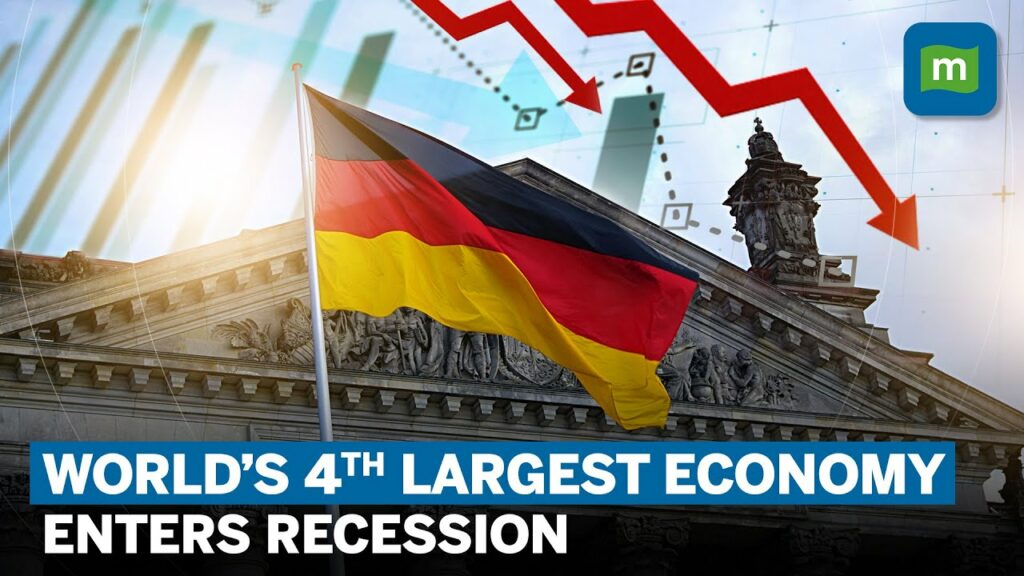Digital Zeitgeist – Germany at a Crossroads: Goldman Sachs Explores the Challenging Terrain Ahead for Europe’s Largest Economy
In a world marked by tumultuous economic landscapes, Germany stands at a precarious intersection, attempting to brace against an onslaught of economic headwinds that threaten to undermine its historically stalwart economy. Goldman Sachs’ chief global equity strategist and head of macro research EMEA, Peter Oppenheimer, painted a concerning picture of the looming threats hovering over Germany as he unfolded a detailed analysis of the nation’s embattled economy, highlighting potential areas of concern that could signal darker days ahead.
Unravelling the Multi-Faceted Challenges
“The predicament that the economy is facing at the moment is really down to a number of factors,” Oppenheimer detailed during a recent CNBC interview, laying bare a Germany ensnared in economic predicaments spurred by disruptions in the manufacturing sector, a dampened effect from China’s reopening, and escalating energy costs.
In an economic era echoing ominous overtones of 1998, when Germany was dubbed the “sick man of Europe”, the nation grapples with crippling challenges anew, the shadows of which loom large as the Bundesbank forecasts a contraction in the economic output this quarter. A stagnant private consumption paired with industry hesitations echoes the worrying decline, reminiscent of times of financial strain, hinting at a possible deepening of the recession landscape.
The Silver Lining in the Equity Market and the Mittelstand
Though Oppenheimer endeavoured to spot beams of hope piercing through the gloom, stating, “The equity market has been holding up quite well and there are some bright spots,” he acknowledges that these slender strands of optimism are threatened by a larger, more perilous landscape. It is amidst this disquiet that he looks towards the Mittelstand, Germany’s core of small and medium enterprises, viewing them as potential harbours in the stormy economic seas.
Despite the forecast of “fat and flat” returns in the DAX index, the palpable concern is that even this muted optimism might be swept away in the face of overarching global tensions and economic uncertainties, leaving Germany grappling with potent threats to its economic stability.
The Double-Edged Sword of Chinese Trade and Geopolitical Tensions
China, a significant actor in the global economic theatre, emerges with a pivotal role in Germany’s impending economic narrative. Though a resurgence in the DAX, allied to a broader spectrum of China-centric assets, suggests a spark of hope, Goldman Sachs alerts to a treacherous path ahead; a path where economic revitalisation may fall prey to underwhelming assistance from Chinese trade engagements.
The report further augments the gravity of the situation, forewarning that escalations in geopolitical tensions or a contraction in world trade dynamics could staunch Germany’s economic recuperation, setting the stage for a global economic narrative fraught with challenges and uncertainties.
Global Economic Consequences and a Way Forward
As Germany stands beleaguered by a tempest of global disruptions, the impacts are anticipated to resonate ominously across the world financial landscape. A surge in energy costs, resonating globally, raises the spectre of destabilising inflationary spirals, poised to wreak havoc on global economic balances.
Furthermore, the manufacturing sector’s adversities mirror larger global industrial challenges, heralding a period of intense scrutiny and a potential overhaul of established supply chains, urging for reinforced fortifications against relentless economic pressures.
The tepid response to China’s reopening also lays bare the vulnerabilities ingrained in the international economic system, exposing the dire need for diversification to shield economies from singular, catastrophic shocks.
Conclusion: A Global Narrative of Interconnected Fortunes
As Goldman Sachs paints this picture of Germany’s economic trajectory, it showcases a journey strewn with daunting challenges, with minimal glimmers of hope fighting to shine through a sky overshadowed by global economic turmoil.
In a world where the stakes are higher than ever, the Mittelstand stands as a fragile beacon in a storm, encapsulating not just Germany’s, but the world’s collective hopes for innovation and agility, against a backdrop of uncertainty and fear.
As the world stands witness to Germany’s tribulations, it finds a reflection of its own fears and insecurities, a mirror to the overarching trepidations enveloping the global economic landscape. It is a moment in history that demands not just national but international solidarity, a collective breath held in hope and fear, as Germany navigates the crossroads, with the world’s fortunes inexorably tied to its own.
A decisive leadership, both in Germany and globally, is now more critical than ever, steering the ship through uncharted waters, facing the storms with a resolve to forge a future not marred by recession but aiming towards resurgence. The world watches with breaths held, praying that the “sick man of Europe” metamorphoses into a testament of resilience, a symbol of triumph in the face of adversity, embarking on a path to recovery fraught with peril but holding onto a fragile hope for a harmonious global economic future.
Disclaimer: The views and opinions expressed in this article are those of the author and do not necessarily reflect the official policy or position of GPM-Invest or any other organisations mentioned. The information provided is based on contemporary sourced digital content and does not constitute financial or investment advice. Readers are encouraged to conduct further research and analysis before making any investment decisions.

